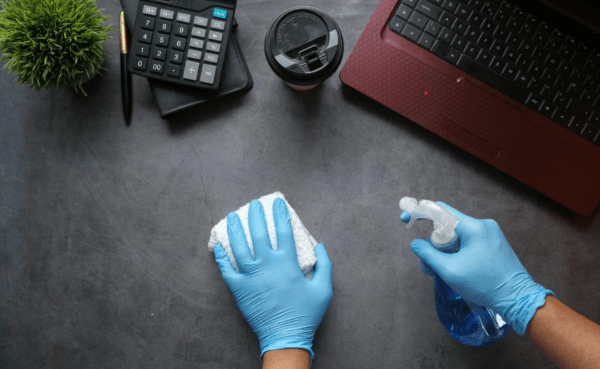In case you missed it see what’s in this section
Let's Talk
DIY vs. Professional Furniture Cleaning: Pros and Cons
Furniture, in its essence, not only complements the aesthetics of our homes but also significantly impacts our health and well-being.
Clean and well-maintained furnishings can elevate the atmosphere of any space, creating a welcoming and comfortable environment. Conversely, neglected upholstery can become a breeding ground for dust mites, allergens, and bacteria, posing potential health risks and detracting from the overall ambiance of our living areas.
Homeowners are thus faced with a crucial decision when it comes to furniture maintenance: to undertake the cleaning themselves or to seek the expertise of professional cleaning services. This decision is not always straightforward, as it involves weighing the benefits of personal involvement and cost savings against the assurance of professional quality and efficiency. In exploring the pros and cons of DIY versus professional furniture cleaning, this article aims to provide readers with a thorough understanding of each option, enabling them to make an informed choice that best suits their needs and circumstances.
Understanding Furniture Cleaning

Furniture cleaning encompasses more than just surface tidying; it delves deep into the fibers of various materials that adorn our homes. Each piece of furniture, be it a sofa, chair, or any upholstered item, comes with its own set of cleaning requirements dictated by the fabric it's upholstered with. The diversity of materials — from hardy leathers to delicate fabrics like silk or velvet — necessitates a tailored approach to cleaning, especially when faced with common household stains such as spills, ink, or pet accidents.
An often overlooked aspect that significantly influences the cleaning process is the cleaning code found on furniture tags. These codes, typically "W," "S," "S/W," or "X," serve as a crucial guide for selecting the appropriate cleaning solutions and methods, ensuring the longevity and appearance of the furniture are maintained. Understanding these codes is the first step in effectively tackling furniture cleaning, as they indicate whether water-based cleaners, solvent-based cleaners, a combination of both, or neither (vacuuming or brushing only) should be used. This knowledge empowers homeowners to make informed decisions, ensuring that their cherished furnishings receive the care they deserve while maintaining the aesthetic and health standards of their living spaces.
DIY Furniture Cleaning: Pros and Cons
Embracing the DIY approach to furniture cleaning offers several enticing benefits. Firstly, it stands out as a cost-effective alternative, eliminating the need for professional service fees. Homeowners gain full control over the cleaning process, selecting the specific cleaning agents and techniques that align with their furniture's needs and their personal preferences. There's also an undeniable satisfaction that comes from personally caring for one's belongings, adding a layer of personal touch to the maintenance of a home.
However, the DIY route is not without its pitfalls. A significant drawback is the risk associated with using incorrect cleaning solutions. An ill-informed choice can lead to discoloration, fabric damage, or worse, irreparable harm to cherished furniture pieces. Additionally, the endeavor of cleaning furniture can be surprisingly time-consuming. What might initially seem like a simple task could easily consume a considerable portion of one's day, particularly for those tackling large or multiple pieces.
These cons highlight a critical aspect of DIY furniture cleaning — while it can offer savings and personal satisfaction, it carries inherent risks and may not always reach the thoroughness or safety of professional cleaning standards. The decision between DIY and professional furniture cleaning ultimately hinges on weighing these pros and cons against one’s own priorities and capabilities.
Professional Furniture Cleaning: Pros and Cons
Opting for professional furniture cleaning services brings a host of benefits, paramount among them being the level of expertise these professionals bring to the table. They are well-versed in handling a variety of materials, ensuring that each piece, regardless of its fabric, receives the care it needs. With access to advanced equipment and specialized cleaning solutions, professionals can achieve a depth of cleanliness and thoroughness that is often beyond the reach of DIY methods. Moreover, their efficient techniques not only restore the beauty of furniture but can also prolong its lifespan, making it a worthwhile investment in the long run.
Another significant advantage is the potential improvement in indoor air quality. Professional cleaners can effectively remove allergens trapped within the upholstery, contributing to a healthier living environment.
However, these premium services come at a higher cost compared to undertaking the task yourself. This expense is a crucial consideration for many households operating within a budget. Additionally, there are concerns about the chemicals used in the cleaning process. While most professionals use safe and approved solutions, some clients remain wary about the potential use of harsh chemicals and their impact on health and the environment. This highlights the importance of selecting a reputable service that offers transparency about their cleaning methods and prioritizes eco-friendly options.
Weather in Swindon
Listings





















